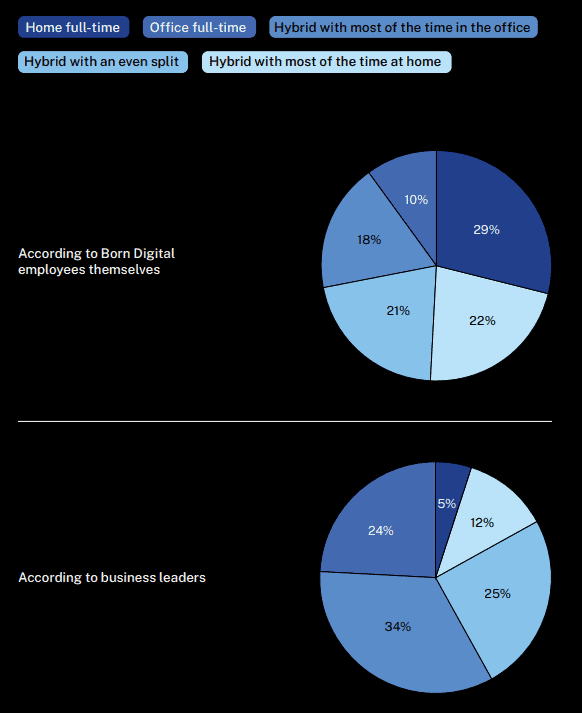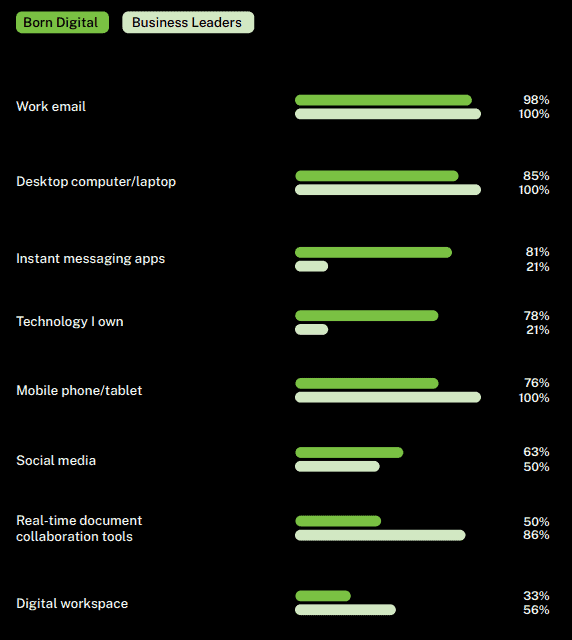With virtual work models still the default for Singapore’s businesses, younger, digitally born professionals, and employees, especially those from the Millennial and Generation Z demographics, will continue to be the engines of the knowledge economy.
Commissioned by Citrix, the global survey, The Born Digital Effect Study, revealed that these workers are not only primed to be tomorrow’s business leaders but will also be expected to deliver an extra US$1.9 trillion in corporate profits. However, they will need some help to pull it off.
Defined as consisting of Millennials (born 1981 to 1996) and Generation Z (born after 1997), Born Digitals are the first generation to experience the evolution of the digital world and are expected to form most of the Singaporean workforce in the next decade.
Donna Kimmel, executive vice president of chief people officer, Citrix, says these young employees are different from previous generations in that they have only ever known a tech-driven world of work.
“To shore up their future business success, companies must understand their values, career aspirations and working styles and invest in their development,” she continued.
Singaporean preferences
Preferred Working Locations

As part of a study commissioned by Citrix, Milieu Insights surveyed 366 PMEs in Singapore. These include 300 Born Digital (18-40 years old), and 188 are business leaders Born Digital and older.
Seventy-nine per cent of Born Digital Professionals, Managers and Executives (PMEs) (79%) and 78% of business leaders surveyed from Singapore cited wanting the option to continue to work from home or remotely a few days a week.
Additionally, 72% of business leaders stated that they will implement some form of hybrid or flexible work model even after the pandemic.
These sentiments indicate a strong belief that hybrid and flexible models will be the new default format for work, despite the acknowledgement from both groups that these working models present potential challenges that would impede on social and communicational elements such as visibility (52%), collaborations (51%) and exclusion (46%).
Singaporean professionals’ positive outlook on virtual and hybrid workplaces, has in part been empowered by the recent success of repivoting with technology to ensure business continuity and productivity and maintain a healthier work-life balance.
Preferred technologies

More than 70% of all respondents felt that leveraging enterprise tools, platforms and applications have helped them achieve better productivity, be more efficient at collaborating virtually and remain connected with colleagues during the prolonged work-from-home periods.
More than 70% of Singaporean business leaders and young PMEs also believe that such tech-enabled flexible working allows a work-life balance to be better managed.
When compared to global results in which it is evident that there is a gap between senior executives’ understanding of what engages and motivates younger employees, and what matters most to Born Digitals, both business leaders and young professionals in Singapore are generally aligned on the workplace priorities of the Born Digital generation.
While most Singaporean respondents agree on the evolving expectations of flexible work, the study reiterates the ongoing challenges which organisations need to address to ensure employees are engaged, motivated and their expectations are managed.
Citing clear commercial benefits to doing so, Tim Minahan, Citrix executive vice president of business strategy, said: “Successfully attracting and retaining the Born Digital will require organisations to invest in the work model and tools to create the flexible, efficient and engaging work environment that this next generation of leaders craves and thrives in.”




